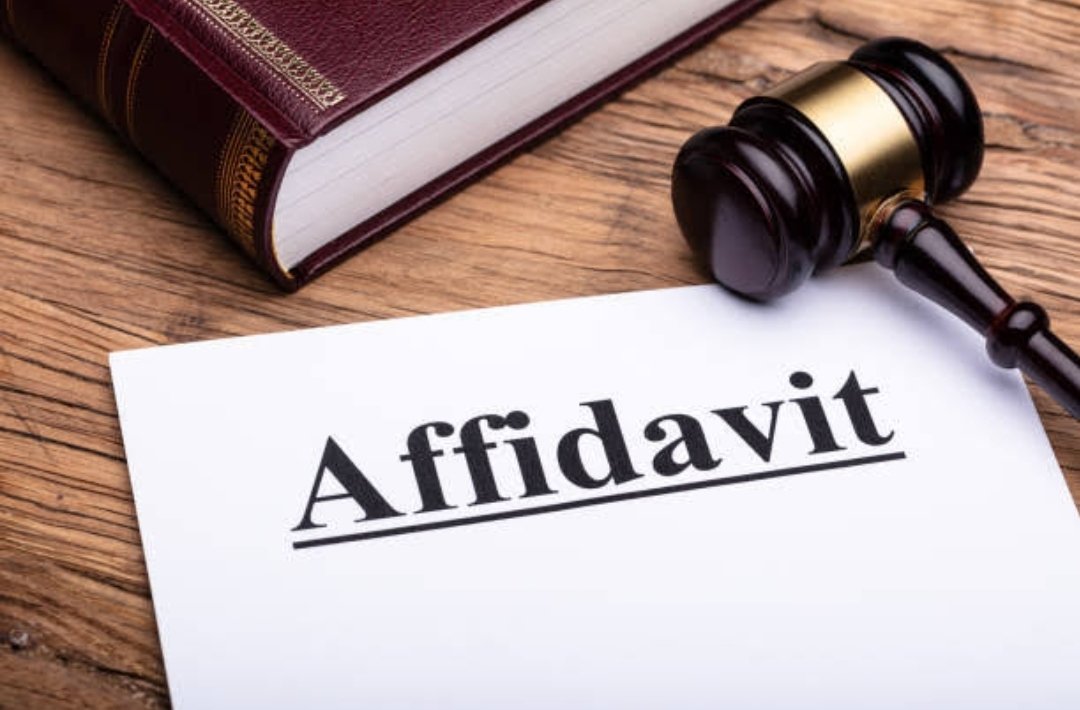Affidavits are a crucial element in legal proceedings, serving as formal written statements used to present facts or evidence under oath. They play a significant role in various legal contexts, including court cases, business transactions, and personal matters. This article aims to provide a comprehensive understanding of affidavits, their importance, the process of creating one, and their application in different scenarios.
What is an Affidavit?
An affidavit is a sworn statement of fact made voluntarily by an individual (known as the affiant or deponent) under oath or affirmation. It is a written document that confirms the truthfulness of the information provided, with the affiant attesting to its accuracy. Affidavits are used as evidence in legal proceedings and must be notarized by a notary public or an authorized official.
The Importance of Affidavits
Affidavits hold significant weight in legal and administrative matters for several reasons:
1. Evidence in Legal Proceedings
Affidavits serve as evidence in court cases, helping to establish facts and support arguments. They are used in both civil and criminal cases, providing written testimony that can be relied upon by judges, lawyers, and juries.
2. Formal Verification
By requiring an oath or affirmation, affidavits ensure that the information provided is truthful and accurate. This formal verification process reduces the risk of false statements and promotes integrity in legal and administrative matters.
3. Documentation
Affidavits provide a documented record of statements and facts. This is especially important in legal disputes, where having a clear and detailed account of events can be crucial to the outcome of the case.
4. Versatility
Affidavits are versatile and can be used in various situations, including real estate transactions, financial agreements, immigration applications, and more. Their flexibility makes them an essential tool in many legal and administrative processes.
Creating an Affidavit
The process of creating an affidavit involves several key steps:
1. Identify the Purpose
The first step in creating an affidavit is to identify its purpose. This will determine the content and structure of the document. Common purposes include providing testimony in a court case, verifying identity, confirming financial information, or documenting events.
2. Write the Statement
The affiant must write a clear and concise statement outlining the facts they wish to attest to. The statement should be organized logically, with each fact presented in a separate paragraph. It is essential to include all relevant details and avoid ambiguous or vague language.
3. Include Personal Information
An affidavit should include the affiant’s personal information, such as their full name, address, and contact details. This helps to establish their identity and provides context for the statement.
4. Take an Oath or Affirmation
The affiant must take an oath or affirmation to confirm the truthfulness of their statement. This is typically done in the presence of a notary public or an authorized official, who will administer the oath and notarize the document.
5. Notarization
The final step in creating an affidavit is notarization. The notary public or authorized official will verify the affiant’s identity, witness the signing of the document, and affix their official seal or stamp. This step is crucial to ensure the affidavit’s validity and authenticity.
Applications of Affidavits
Affidavits are used in a wide range of legal and administrative contexts. Some common applications include:
1. Court Cases
In legal proceedings, affidavits are used to present evidence, provide witness testimony, and support legal arguments. They can be submitted to the court as written statements or used to supplement oral testimony.
2. Real Estate Transactions
Affidavits play a significant role in real estate transactions, such as confirming the identity of buyers and sellers, verifying property ownership, and documenting financial agreements.
3. Financial Matters
Affidavits are often used in financial matters, such as applying for loans, verifying income, and confirming the accuracy of financial statements.
4. Immigration Applications
In immigration cases, affidavits are used to support visa applications, provide evidence of relationships, and document personal histories.
5. Personal Matters
Affidavits can also be used in personal matters, such as verifying identity, confirming the contents of a will, or documenting events for insurance claims.
Conclusion
Affidavits are a vital component of the legal system, providing a formal and reliable way to present facts and evidence. By requiring an oath or affirmation, affidavits ensure the accuracy and integrity of the information provided, making them indispensable in various legal and administrative contexts. Understanding the process of creating an affidavit and its applications can help individuals and businesses navigate complex legal matters with confidence. Whether used in court cases, real estate transactions, financial agreements, or personal matters, affidavits play a crucial role in establishing truth and promoting justice.
